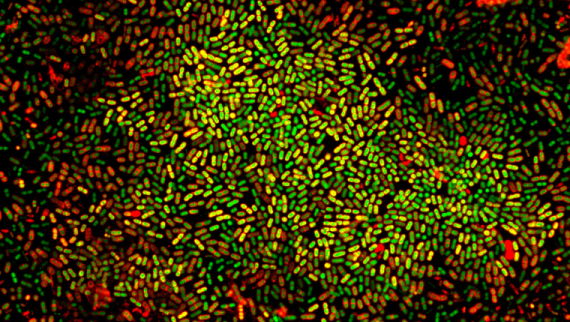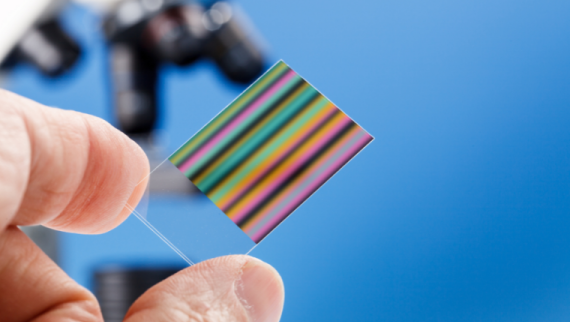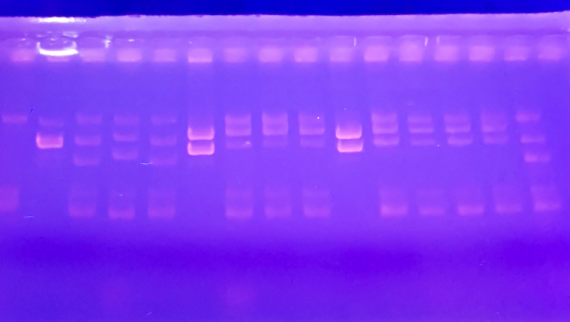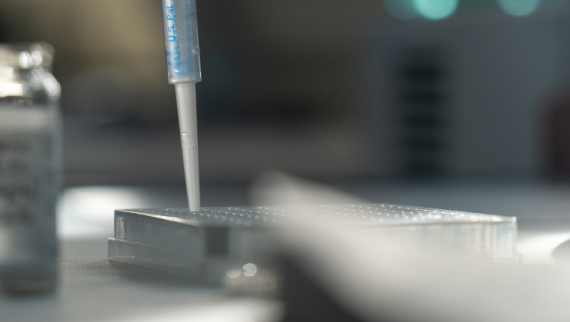Food industry 4.0
Traditional methods of food processing are quickly evolving to integrate the latest advances in information technology, automation and control along entire supply chains and factories, which is known as the Food Industry 4.0 . The idea behind it is to create synergies among all elements along a processing chain, from primary producers to final consumers, based on data and machine learning to drive improvements in productivity, quality and sustainability.
The Institute of Marine Research is contributing to this revolution with its innovative technologies and approaches. Our researchers and technicians currently work on improved sensors & models for production & traceability. By providing real-time data on the status of a process or product, we allow for greater and more flexible control over production. We also add value to these food products and increase their shelf-life.
Furthermore, the IIM works on the development of new environmentally-friendly packaging and smart interactive labeling to better inform all the agents along the food chain. Finally, exploring new technologies and methods for the valorization of waste products fosters a circular economy, which, once again, brings our society closer to fully sustainable development.
A common example of integration along the value chain is traceability. Traceability of raw materials can increase the added value of food products and prevent food fraud. Moreover, traceability of contamination and quality also ensures food safety and increases shelf life for many products. Sensing technologies and modeling contribute greatly to this effort by providing real-time data on the status of a process or product, thus allowing for greater control and flexibility to optimize the production dynamically.
Food industry is also demanding environmentally friendly conservation and packaging systems, with smart and interactive labeling to increase shelf life and respond to consumers demands. Consumers also demand a more responsible and circular food industry. Valorization of by-products from the food processing industry also helps to minimize its environmental impact, as well as to create new value chains.
As you can see, the institute has been accompanying the food industry during this fourth revolution in many different aspects; you can read about all our capabilities and associated services below.
Capabilities
- Software | GenSSI: toolbox for structural identifiability analysis of biological models
GenSSI is a toolbox that requires MATLAB and Symbolic Math Toolbox. It offers a technique for studying structural identifiability using iterative Lie derivatives and identifiability tableaus.
More information here,
- Software | SensSB: toolbox for the development and Sensitivity analysis of Systems Biology models
Authors: M. Rodríguez-Fernández and J. R. Banga
Description: SensSB is an easy-to-use Matlab®-based sensitivity analysis software toolbox. This tool integrates a variety of local and global sensitivity methods that can be applied to biological models described by ordinary differential equations (ODEs) or differential algebraic equations (DAEs). SensSB is also able to import models in the Systems Biology Mark-up Language (SBML) format.
Available here upon request.
- Software | GLOBALm: a clustering method for constrained global optimization problems in Matlab
Method described in Csendes, T., L. Pal, J.O.H. Sendin, J.R. Banga (2008) The GLOBAL Optimization Method Revisited. Optimization Letters, 2(4):445-454.
Software available upon request (email us if interested).
- Software | MITS: a Tabu search-based algorithm for mixed-integer nonlinear problems (MINLPs)
Method described in: Exler, O., L.T. Antelo, J.A. Egea, A.A. Alonso and J.R. Banga (2008) A Tabu search-based algorithm for mixed-integer nonlinear problems and its application to integrated process and control system design. Computers & Chemical Engineering, 32(8):1877-1891.
Software available upon request (email us if interested).
- Software | ACOmi: Ant Colony Optimization for mixed integer nonlinear programming problems (MINLPs)
The method is described in Schlater, M., J. A. Egea, J. R. Banga (2009) Extended ant colony optimization for non-convex mixed integer nonlinear programming. Computers & Operations Research 36(7): 2217-2229.
Software available upon request (email us if interested).
Active projects
- LIFE REFISH -
<p>Flexible biorefinery to valorise discards and by-products of the European fish and seafood production (REFISH)</p>
Principal investigator:VázquezÁlvarezXosé AntónFunding body:LIFE Environment (Nature & Circular Economy)Funding for IIM-CSIC:357637€Go to project pageFromto - WASHTOP -
<p>Water Associated Safety Hazards in the Treatment of Produce</p>
Principal investigator:RodríguezGarcíaMíriamFunding body:European Food Safety Authority (EFSA)Funding for IIM-CSIC:80000€Go to project pageFromto 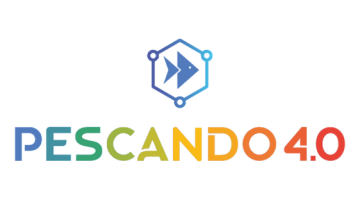 PESCANDO 4.0 -
PESCANDO 4.0 -<p>Plataforma Blockchain e IoT para garantizar la trazabilidad, seguridad, calidad y sostenibilidad en la cadena de valor de los productos pesqueros</p>
Principal investigator:VilasFernándezCarlosFunding body:PROYECTO FINANCIADO POR EL PLAN DE RECUPERACIÓN, TRANSFORMACIÓN Y RESILIENCIA Y LOS FONDOS EUROPEOS NEXT GENERATION EU EN EL MARCO DEL REAL DECRETO 685/2021 DEL 3 DE AGOSTOFunding for IIM-CSIC:145812€Go to project pageFromto- DTWINE2021 -
<p>Digital Twins to optimize energy efficiency and product quality in WINEries</p>
Principal investigator:BalsaCantoEvaFunding body:Proyecto PLEC2021-007827 financiado por MCIN/ AEI /10.13039/501100011033 y por la Unión Europea NextGenerationEU/PRTRFunding for IIM-CSIC:248164€Go to project pageFromto - SEAFOOD-ID -
<p>ANALYTICAL STRATEGIES BASED ON NON-DESTRUCTIVE METHODS AND METAGENOMICS FOR THE CONTROL OF PRODUCTION METHOD AND GEOGRAPHIC ORIGIN</p>
Principal investigator:GonzálezSoteloCarmenPérezMartínRicardo IsaacFunding body:Proyecto PID2020-118012RB-C21 financiado por MCIN/ AEI /10.13039/501100011033Funding for IIM-CSIC:168000€Go to project pageFromto - Contrato Programa -
<p>AYUDA CONVENIO ENTRE CSIC Y LA AXENCIA GALEGA DE INNOVACIÓN -GAIN- PARA EL DESARROLLO DE PROGRAMAS DE I+D+i EN LOS INSTITUTOS DE INVESTIGACIÓN DEL CSIC EN GALICIA Y EN LOS CENTROS OCEANOGRÁFICOS DEL INSTITUTO ESPAÑOL DE OCEANOGRAFÍA (CSIC-IEO). 2021-2022</p>
Principal investigator:SaboridoReyFranFunding body:Agencia Galega de InnovaciónFunding for IIM-CSIC:521824€Go to project pageFromto - ANIBLOCK_ANICHAIN -
<p>Investigación sobre párasitos del pescado, principalmente anisakis y otros.</p>
Principal investigator:GonzálezGonzálezÁngel FranciscoFunding body:MERCADONA SAFunding for IIM-CSIC:41013€Go to project pageFromto - ResiduoZero_2 -
<p>Residuo Zero: Puesta en marcha de una planta piloto par ala transformación y elaboración de nuevos productos procedentes de la transformación de dorada y lubina Culmárex y en los planes de etiquetado de nuevos Productos.</p>
Principal investigator:MedinaMéndezIsabelFunding body:Culmarex S.A.Funding for IIM-CSIC:24705€Go to project pageFromto - BBM -
<p>Biotecnología y Bioprocesos Marinos</p>
Principal investigator:GonzálezSoteloCarmenFunding body:Ayudas cofinanciadas con fondos de la Agencia Gallega de Innovación de la Xunta de GaliciaFunding for IIM-CSIC:75000€Go to project pageFromto - ARMAS -
<p>Estudio, diseño e implementación de estrategias de Análisis de riesgos para fortalecer las seguridad, calidad y calidez del Rape y la Merluza del Atlántico Sudeste frente a parásitos zoonóticos</p>
Principal investigator:GonzálezGonzálezÁngel FranciscoFunding body:Mascato SAFunding for IIM-CSIC:88417€Go to project pageFromto






